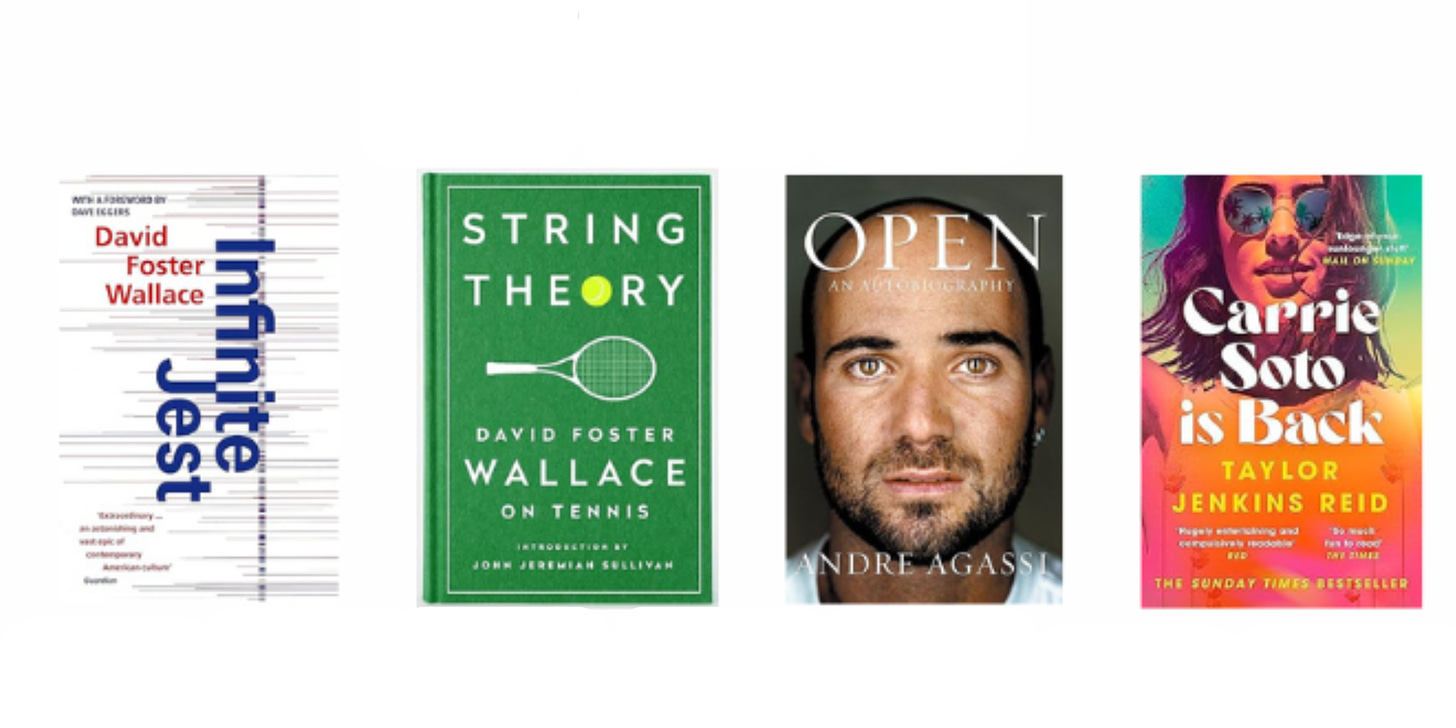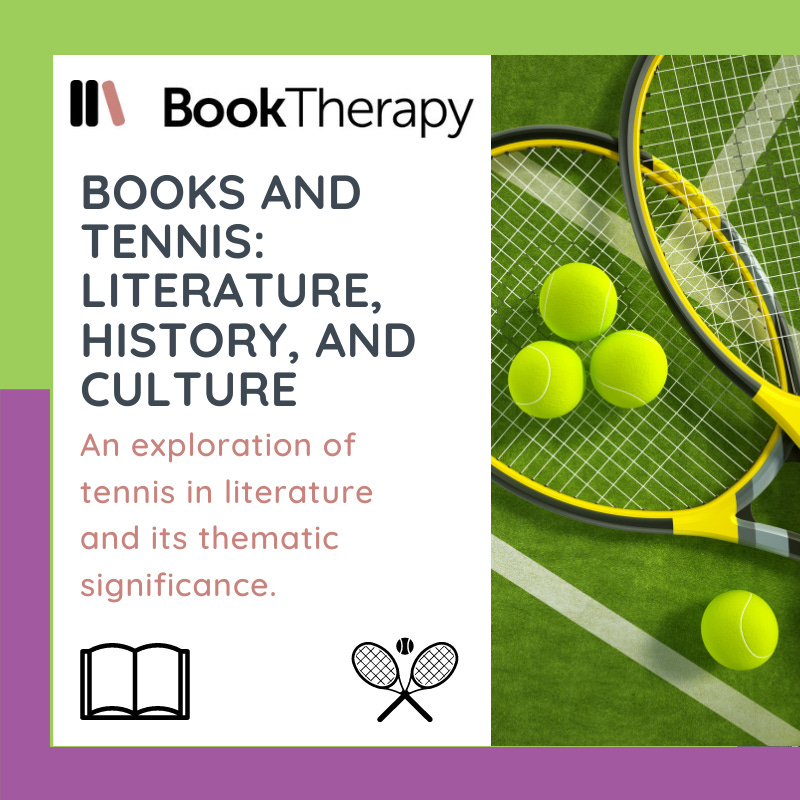Literature on the Court: What Bibliotherapy and Tennis Have In Common
Posted by Bijal Shah on
It's tennis season and today we're focusing on bibliotherapy and tennis. As an avid tennis fan who enjoys watching and playing the game, I am really looking forward to Wimbledon this year and plan to attend a couple of days. And as I look forward to this, I could not help but reflect on the subtle commonalities between the two, tennis and bibliotherapy – both in essence mirrors of life, one that holds literature as the mirror and the other, tennis, holds the court as the mirror. For how we approach tennis is how we approach life.
Life is often a performance and so is tennis, life is often about power and control and so is tennis. And most importantly both are mental games that we play. We never know what the other players, in the case of tennis, our opponents and in the case for life our friends, families, colleagues are going to do but we are always responding back and forth, accordingly.
And bringing it back to literature, both literature and tennis bring out emotions in us as readers and spectators, the anticipation, dread, joy, sadness, loss, win, hope, perseverance, resilience – the emotional buttons that both push make them ripe for the therapeutic arena and it is no wonder, that Timothy Gellway, author of The Inner Game of Tennis, and known as the godfather of life coaching pioneered this whole field though his insights and wisdom from tennis coaching.
Vladimir Nabokov’s Lolita and David Foster Wallace’s Infinite Jest explore both these ideas in great length. In Lolita, both the protagonists, Humbert and Lolita’s relationship on court mirrors their off court one with Lolita being dominated and manipulated by Humbert at every point. In Infinite Jest, the on-court battles are ones that we are often having with our own minds, as we play a psychological game with our opponent we are faced and forced to reckon with our inner minds, questioning our inner voices, suspending judgement, learning to trust ourselves. The court like the book offers a safe space for exploring our inner most thoughts and feelings.
In light of this, we may not all play tennis, so my proposition to you all is to perhaps consider the use of these tennis novels in your own bibliotherapy as tools for introspection and self-awareness. Whilst you focus on the protagonists and explore their inner worlds, is there something about yourself that is resonating? Other helpful book include the memoirs, André Agassi’s Open and John McPhee’s Levels of the Game, offering valuable insights into the mental and emotional challenges of the sport and the novel Double Fault by Lionel Shriver. This novel tells the story of a married couple who are both professional tennis players, exploring the tensions and dynamics of their competitive relationship.
If you’d like to explore the relationship between, tennis, literature and psychology plus its historical and cultural influences, you may enjoy our course, Books and Tennis: Literature, Psychology, History, and Culture
I’d love to hear your thoughts and reflection on both bibliotherapy and tennis as tools that encourage and enable self-introspection, so do reach out :)


